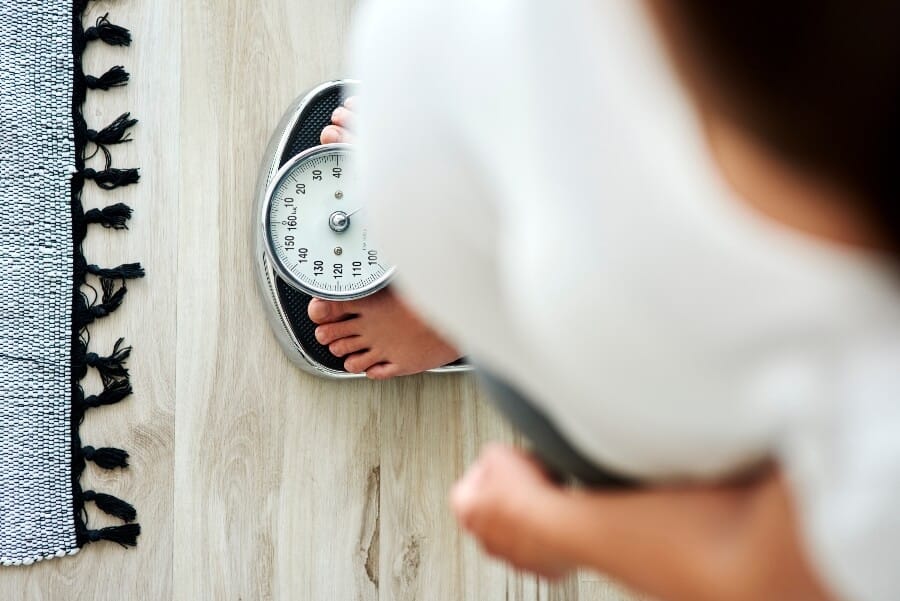The conventional wisdom is that the menopause years are when women gain the most weight. It’s certainly what we believed, and what we thought we were experiencing. We’re talking about the thickening of the midsection, the new, matronly profile of the bosom, the behind that resembles a dimpled pear, the BACK FAT! But do not fret. As far as weight gain goes, we have some good news.
Without question, 10-year weight gain is a serious problem within the U.S. adult population. Arrrgh!
According to newly published research from Brigham Young University, exercise science have come found critical, rare data detailing the severity of the U.S. obesity epidemic—overall and by age group.
The article, published in the Journal of Obesity, looked at the long-term weight gain of more than 13,800 U.S. adults—a rare data point unearthed in obesity research. They found that more than half of American adults in the study gained 5 percent or more body weight over a 10-year period. What’s more, more than a third of American adults gained 10 percent or more body weight and almost a fifth gained 20 percent or more body weight.
“The U.S. obesity epidemic is not slowing down,” said study lead author Larry Tucker, a BYU professor of exercise science. “Without question, 10-year weight gain is a serious problem within the U.S. adult population.”
Read More: How to Lose Weight During Menopause: Herbal Tonics, Intermittent Fasting, and More
But Where’s the Promised Good News?
We’re getting there. But first a little more of the downer stuff. Sorry! Study participants were selected randomly as part of the National Health and Nutrition Examination Survey, an annual survey that examines a nationally representative sample. NHANES is a CDC-sponsored series of studies that began in the early 1960s and became a continuous program in 1999.
The study found women gain about twice as much weight over a 10-year period as men.
Using data from the National Health and Nutrition Examination Survey, which began in the early 1960s, the study also found that 10-year weight gain was significantly greater in women than in men, with women gaining about twice as much weight: 12 pounds on average for women compared to 6 pounds for men. We think childbirth explains a lot of that, but we don’t know how to account for all the beer bellies we’ve seen on men.
Weight gain also differed across races, with Black women experiencing the greatest average weight gain over the 10-year period (19.4 pounds) and Asian men experiencing the least (2.9 pounds).
Ok, but here’s the bright spot: less weight is gained as age increases. Hallelujah, right?
According to the data, on average Americans gain the following weight:
- 17.6 pounds between their 20s and 30s
- 14.3 pounds between their 30s and 40s
- 9.5 pounds between their 40s and 50s
- 4.6 pounds between their 50s and 60s
So what does this mean? That we aren’t predestined to gain weight in these years. We shouldn’t accept it as fact and we should certainly not let that conventional wisdom deter us from making efforts to control and manage this aspect of health as we get older. Because, really, who likes conventionality anyway?
Read More: Burn Fat, Re-Set Your Body on a Fast-Mimicking Diet





















0 Comments